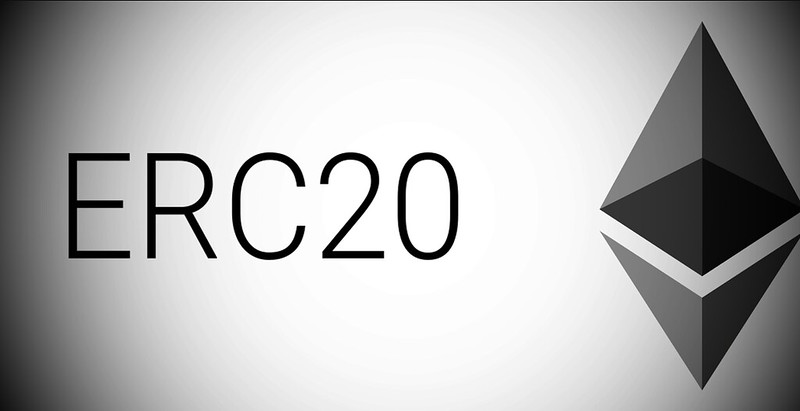6 Best ERC20 Wallets To Store Ethereum Tokens In 2023

ERC20 is a standard for creating and issuing tokens on the Ethereum blockchain. These tokens share compatibility with any wallet or exchange that supports the Ethereum network. However, it’s important to note that not all wallets are created equal in terms of user-friendliness, security, and advanced features. In this article, we will delve into six of the top ERC20 wallets available in 2023 where you can conveniently and securely store your Ethereum tokens.
Whether you prefer storing your tokens on a hardware device, a desktop application, a mobile app, or a web browser, there is an ERC20 wallet available to meet your specific needs. Each wallet comes with its own set of advantages and disadvantages, tailored to suit individual preferences. Here are the top six ERC20 wallets for securely storing your Ethereum tokens in 2023:
List of the Best ERC20 Wallets In 2023
Below are the top seven ERC20 wallets recommended for investors:
- Coinbase Wallet – The upcoming release of Best Wallet, the ultimate crypto wallet for storing ERC20 tokens, is set to dominate the market. This non-custodial wallet offers decentralized storage on both desktops and smartphones. With Best Wallet, users can effortlessly swap ERC20 tokens and enjoy staking rewards.
- eToro – eToro offers a regulated wallet and exchange that provides secure storage for cryptocurrencies. It takes care of storing private keys on half of users, making it particularly appealing to beginners. In addition to storing ERC20 tokens, eToro allows users to trade cryptocurrencies with a 1% transaction fee easily.
- Ledger – Ledger is widely renowned as one of the safest ERC20 wallets available. Its security features include cold storage facilitated by a compact hardware device. Users have the option to select from three different Ledger models, with prices ranging from $79 to $279.
- Trust Wallet – Trust Wallet is a versatile platform that seamlessly integrates with all ERC20 tokens and various other cryptocurrency networks. Users have the flexibility to manually add ERC20 tokens through contract addresses, even if they are not pre-listed.
- Binance – Binance provides a convenient solution by offering an ERC20 wallet and exchange within its platform. Users can easily manage their funds between the two simply by logging into their accounts. Binance supports over 350 cryptocurrencies, including major ERC20 tokens, providing users with extensive options.
- MetaMask – Another wallet that enables users to store ERC20 tokens without custodial control is available. Users can access this user-friendly application on iOS and Android devices, as well as through browser extensions for popular platforms like Chrome, Brave, Firefox, and Edge.
Best ERC20 Wallets – Detailed List
1. Coinbase Wallet
Coinbase Wallet is one of the top ERC20 wallets available, offers exceptional support for a wide range of tokens. In addition to any ERC20 token, users can store Bitcoin, Solana, Optimism, Avalanche, and more. This feature-rich wallet is free to download and accessible as an Android and iOS app.
Coinbase Wallet operates on a non-custodial system, ensuring that only the user has access to their private keys. These keys are securely stored and encrypted within the user’s smartphone. Importantly, it should be noted that if these private keys are lost, Coinbase cannot assist in their recovery. Nor can it aid users in reclaiming stolen cryptocurrencies should their wallet face compromise.
The Coinbase Wallet app ensures security through PIN and biometric authentication. However, it lacks support for two-factor authentication or multi-sig permission. On the bright side, Coinbase Wallet offers compatibility with various decentralized applications (dApps), including OpenSea, PancakeSwap, ENS, SushiSwap, and Curve. In addition to that, the wallet provides users with the ability to buy, sell, and trade non-fungible tokens (NFTs).
Pros
- Easy non-custodial app
- Works with ERC20 tokens
- NFT trading supported
- Connects to various dApps
Cons
- No in-built staking tool is available.
- Limited security features are provided.
- Lacks browser extension or desktop software.
2. eToro
While Best Wallet is currently under development, eToro emerges is the next best ERC20 wallet to consider. This wallet provider boasts strong backing from an established exchange with multiple tier-one licenses. Notably, regulatory oversight comes from esteemed bodies such as FINRA (US), ASIC (Australia), FCA (UK), and CySEC (Cyprus). Consequently, users can rest assured knowing that their ERC20 tokens are protected by a reputable provider that prioritizes regulatory compliance.
The eToro wallet operates as a custodial service, meaning that investors are not required to protect their own private keys. To enhance security measures, eToro maintains a dedicated 24/7 risk management team and stores the majority of cryptocurrencies in offline cold wallets. Additionally, accessing the wallet necessitates two-factor authentication. Moreover, we appreciate the convenience of being able to access the eToro wallet both online and through its dedicated app for iOS and Android devices.
Both options offer a user-friendly experience and come with an array of features. For instance, users can seamlessly stake tokens without any additional steps required. Additionally, eToro directly distributes up to 90% of the staking rewards into the user’s wallet. Furthermore, eToro provides a reliable exchange that enables trading between ERC20 tokens and the US dollar.
Pros
- Regulated custodial ERC20 wallet
- Strong security with 2FA and risk team
- Cold storage for most cryptocurrencies
- 90+ supported cryptocurrencies
- 1% commission for ERC20 trades
- Copy trading for passive investing
Cons
- ID upload is required for wallet access.
- 2% fee for web-to-app token transfers.
3. Ledger
Ledger stands out as one of the most secure ERC20 wallets available. Unlike its counterparts, it distinguishes itself as a hardware wallet. Its physical device ensures that private keys remain encrypted internally. What sets Ledger apart is its complete offline nature — it never connects to the internet directly. Instead, transactions are sent to the network via Bluetooth or a USB cable, depending on the model.
To authorize outgoing transactions on any Ledger model, the user must enter their PIN. It is crucial to remember this PIN as it serves as a key for wallet recovery. To ensure safety, Ledger provides a backup passphrase during wallet installation, which should be physically stored on paper. This backup passphrase acts as an additional requirement in case of device loss or theft.
Ledger offers a highly secure ERC20 wallet in the market, but its convenience falls short. This inconvenience primarily affects users who wish to stake or swap ERC20 tokens, as they may find the process cumbersome. Interested individuals can purchase the Ledger Nano S Plus for $79, while those seeking advanced features can opt for the Ledger Stax model, available at a retail price of $279.
Pros
- Top cold wallet for long-term investors
- Private keys stay offline
- Supports major altcoins, including ERC20 tokens
- The entry model costs $79.
Cons
- High fees for card payments (up to 5%)
- It’s not ideal for frequent traders.
4. Trust Wallet
Trust Wallet is a user-friendly and secure non-custodial ERC20 wallet. It offers a seamless experience for users on various devices, such as browser extensions and smartphones. This includes a dedicated app for both iOS and Android platforms. To ensure the safety of your funds, Trust Wallet provides protection through a PIN and encrypts your 12-word passphrase directly on your device. Rest assured that Trust Wallet cannot access or retrieve this encrypted information.
This decentralized crypto wallet is considered one of the best options for securely storing ERC20 tokens. One standout feature we appreciate is Trust Wallet’s compatibility with custom tokens. Essentially, this means that any ERC20 token can easily be added to the wallet. Another advantage of Trust Wallet is its integration with CoinMarketCap, allowing users to view real-time values of listed ERC20 tokens within the app.
Trust Wallet offers support for over 70 blockchains, including popular ones like Bitcoin, XRP, Arbitrum, Litecoin, Cardano, and Binance Smart Chain. In addition to ERC20 tokens, users can effortlessly swap them instantly using the Trust Wallet app’s built-in tools for staking. It’s important to note that these convenient features are exclusively available on the Trust Wallet app and not accessible through the browser extension.
Pros
- Top iOS and Android ERC20 wallet
- Works with all ERC20 tokens
- Compatible with 70+ blockchains, including Bitcoin
- Free staking and swapping
- Real-time portfolio values from CoinMarketCap.
Cons
- Simplex charges up to 5% for fiat.
- Limited features in browser extension.
5. Binance
Active traders may find Binance to be the optimal ERC20 wallet. This particular wallet is centralized and serves as a connection to the Binance exchange, meaning users do not have direct access to their private keys. Instead, Binance takes responsibility for protecting client cryptocurrencies. To enhance security, the wallet requires two-factor authentication during login.
Binance enhances user security by sending a separate code to their cell phone and email, providing an additional layer of protection. Opting for the Binance wallet grants users access to industry-leading commissions as low as 0.1% per transaction. Moreover, holding BNB tokens further reduces these fees. With over 350 pairs available, including numerous ERC20 tokens, the Binance exchange ensures extensive trading options.
ERC20 tokens can be found on the Binance Innovation Zone, which connects to its wallet. Furthermore, Binance offers various opportunities for earning yields on ERC20 tokens through liquidity farming, savings accounts, and staking. Additionally, users of Binance have the option to trade leveraged crypto products. The compatibility between the Binance wallet and its native app provides convenience, although some features may be limited.
Pros
- Top for ERC20 token trading
- Lowest industry trading fees
- Most client assets in cold storage
- Earn yields with staking and farming.
Cons
- DeFi lock-up lasts 120 days.
- No sharing of private keys.
6. MetaMask
MetaMask stands out as an exceptional desktop ERC20 wallet that caters to the needs of its users. Its browser extension is remarkably intuitive, supporting renowned browsers like Chrome, Edge, Firefox, and Brave. The process of downloading and setting up a new MetaMask wallet is effortlessly swift, requiring mere seconds. To ensure utmost security, users are advised to select a robust password and diligently record their 12-word backup passphrase.
MetaMask is pre-installed to support the Ethereum network exclusively, making it an ideal solution for securely storing ERC20 tokens in one centralized location. In case a particular ERC20 token is not initially recognized, users have the option to add it via the contract address manually. Moreover, MetaMask extends its support to five other networks, including Arbitrum, Binance Smart Chain, Optimism, Avalanche, and Polygon.
These networks require manual addition, supporting all native tokens. The wallet interface of MetaMask allows staking, although limited only to Ethereum. Rocket Pool and Lido provide this feature. In addition, users can also conveniently swap ERC20 tokens on MetaMask, subject to a 0.875% fee that is already included in the exchange rate.
Pros
- Top non-custodial ERC20 wallet
- Browser extension and mobile app
- Quick and easy setup.
Cons
- You can only stake Ethereum.
- Token swap includes a 0.875% fee.
- No support for Bitcoin.
Final Words
ERC20 tokens have numerous advantages, including interoperability, compatibility, and standardization. However, to securely store and manage these tokens, one must rely on a trustworthy wallet that supports the ERC20 protocol. Each wallet possesses its own set of features, benefits, and drawbacks. Based on individual needs and preferences, users can select the most suitable option. Nevertheless, regardless of the chosen wallet, it is crucial to consistently safeguard private keys and regularly backup the wallet. By taking these precautions, individuals can enjoy the benefits of ERC20 tokens without putting their funds at risk.








